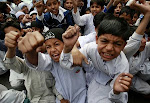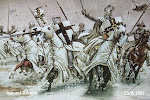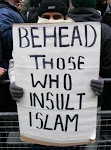"...the Islamic conquest of India is probably the bloodiest story in history. It is a discouraging tale, for its evident moral is that civilization is a precious good, whose delicate complex order and freedom can at any moment be overthrown by barbarians invading from without and multiplying from within.” -Historian Will Durant (1885 –1981)
For three days in November 2008, all eyes were transfixed on the Jihadist bloodbath in Mumbai. These scenes of the burning Taj Mahal Hotel were on live feed to cable and satellite networks around the world. Many Westerners had heard of the rivalry between India and Pakistan, and may have been aware of the tensions centering on the disputed territory of Kashmir, but the sheer brutality and brazenness of the Mumbai Massacre brought the Jihad in India to global consciousness as never before. Unfortunately for India, the Mumbai attacks were only unique in terms of the high-profile media coverage accorded to them. The casualty figures, while appalling, were rather standard in the context of the series of Islamic terror attacks in India in the 21st century. And they are dwarfed by the massacres of tens and hundreds of thousands, sometimes in a single day, that pepper the 1300 year history of Islamic conquest on the Indian subcontinent.
Before the Islamic juggernaut burst in from the west, the native religions of these lands were Hinduism, Buddhism and Sikhism. The Jihad against India was extraordinarily brutal even by Islamic standards. This is because unlike the so-called people of the book, Christians and Jews, who enjoyed some basic rights as subjected Dhimmis… Hindus and Buddhists were considered idolaters; the lowest of the low, worthy only of death.
Only 25 years after Muhammad’s death Islamic forces had crushed the Sassanid Persian Empire, and thus brought the spearhead of Islam to the borderlands of India. The first permanent Muslim foothold on the subcontinent was achieved with Muhammad bin Qasim's conquest of Sindh in 711 A.D. He demolished temples, shattered sculptures, plundered palaces, killed all able-bodied men and carried their women and children into slavery. For example, it took his army three days to slaughter all the inhabitants of the port city of Debal. But the Arab Muslim conquest would stall here in the northwestern frontier.
See the video and read the rest: http://occidentalsoapbox.blogspot.com/2009/04/islamic-crusades-episode-6-indias.html
12 years ago






















No comments:
Post a Comment